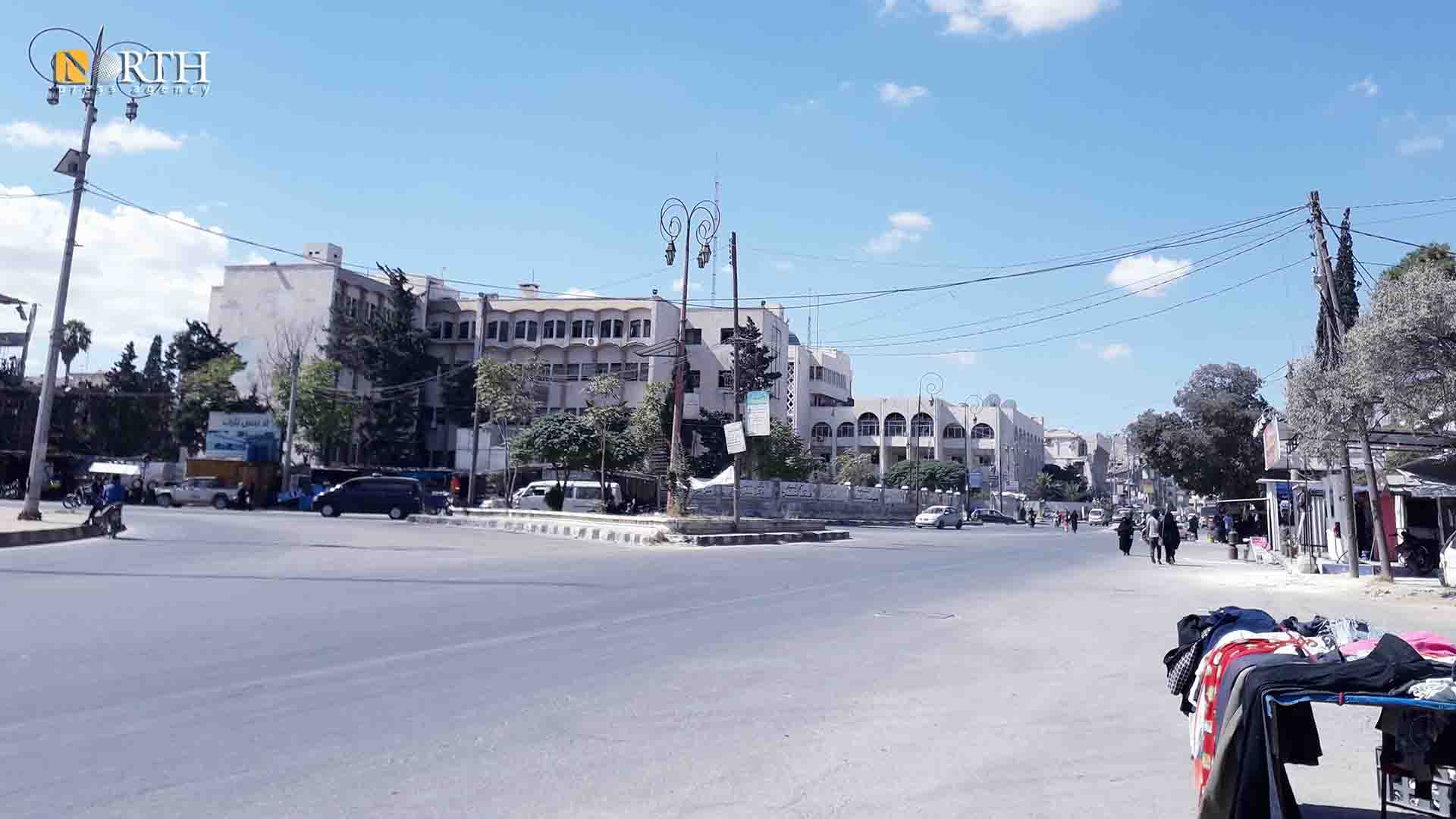IDLIB, Syria (North Press) – Courts affiliated with Hayat Tahrir al-Sham (HTS, formerly al-Nusra Front) in Syria’s Idlib are witnessing judicial corruption, including acquittal of criminals of serious crimes for money.
“We get rid of an oppressor, to fall into the hand of a more oppressive one,” an individual from Idlib said, comparing Syrian government practices in the past to those of HTS.
Khaled Hasson was murdered by a man with whom he had previously quarrelled in broad daylight, after which he fled, Hasson’s wife Umm Muhammad told North Press.
He worked in an observatory center to warn residents when Syrian government planes took off, and “his work and concern for civilian life did not interfere in HTS courts,” Umm Muhammad said.
A murderer walks free
“We always had disputes with the family of the murderer, Hayan, who shot my husband in the head and killed him,” Umm Muhammad said painfully about the murder, which occurred on April 30, 2018.
Hayan sold his land for $10,000 and paid the money to HTS in order to be released. The family was shocked when they found out that the killer was released and lived freely in his house, she added.
“My son attacked his house; however, HTS arrested my son instead of arresting and subjecting him to the court,” she confirmed.
After HTS took control of areas in Idlib, it formed the Syrian Salvation Government and its affiliated Sharia (Islamic law) courts that became a source of livelihood for judges and employees through corruption and bribes, according to local residents.
Theft and murder
Hasson’s incident is not the only one in which criminals were acquitted. In 2016, a group of five individuals robbed and killed Yahya Rajab and his partner Bashar Mohna in 2016.
Though the HTS court arrested the criminals who confessed, their families paid a large amount of money to secure the release of their sons from Idlib’s Central Prison.
Bribes
Paying bribes has become a common and public matter, as HTS often bargains with its detainees in exchange for bribes, according to locals.
Those who pay a large sum of money will be released directly, while it is the opposite for the poor people, who will face an unknown fate in HTS jails, according to local residents.
Suleiman Abi, an employee, was severely beaten by his employer and his sons due to a quarrel after Abi asked for his outstanding salary.
Abi filed a complaint with an HTS court, accompanied by a medical report confirming that he was beaten and had bruises all over his body.
HTS members arrested and brought the accused to the court, Abi told North Press.
“But I was shocked when they released them on the same day for $1,000,” Abi confirmed.
Double standards
“Most people I know have been arbitrarily arrested for months without being questioned,” Muhammad Shawwaf, a lawyer in Idlib, told North Press.
“When HTS arrests people they have two choices: either they pay, or they will be forgotten in prison, especially those who are activists and journalists,” Shawwaf added.
“HTS courts are not official legal institutions; they are merely an authority that is imposed on people by force. They do not have actual law to control and regulate their work or form a clear reference for the litigants,” he said.
Sharia courts
Laws of HTS courts depend on the Islamic law and jurisprudence, Abu Walid, a Sharia judge in the HTS Idlib courts, said.
“The judiciary in Idlib is fair and rules according to the Book of God and the Sunnah of His Messenger,” Abu Walid stated.
“HTS judiciary differs from that of the unjust Syrian government’s, which is dominated by corruption and favoritism,” he pointed out.
Three detainees whom the court released told North Press that their families pressured and asked some mediators from HTS to interfere to release them after they signed a written pledge not to speak about HTS practices in the area.
International organizations document torture
Four detained activists in HTS’s Oqab jail reported that they experienced bad conditions and were tortured and mistreated, Human Rights Watch (HRW) reported.
The investigators were Syrians and Tunisians; no detained was able to speak with or consult a lawyer. Only two of them were tried in HTS courts.
These courts did not implement the required terms according humanitarian law, in which any person should not be convicted or sentenced unless =fairly tried, which did not happen in HTS courts, according to HRW.
All detainees confirmed that heads of the mistreated and tortured them physically.

